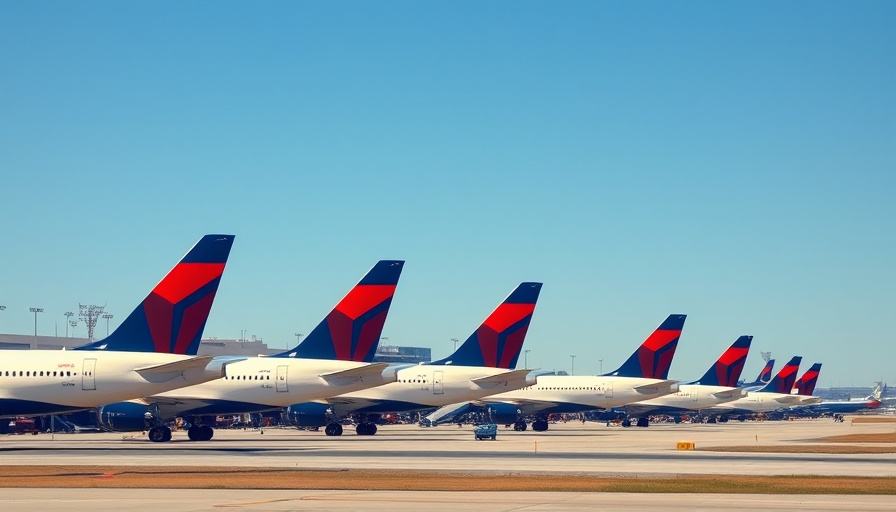
Delta Airlines Adjusts Forecast Amid Economic Uncertainty
Delta Air Lines recently adjusted its forecasts for the first quarter, cutting its expected profit range significantly. This decision stems from observed decreases in both consumer and corporate travel demand. Previously, Delta projected a profit between 70 cents to $1 per share but has since lowered that estimate to between 30 cents to 50 cents per share. This forecast comes amidst broader economic concerns, highlighting how sensitive the airline industry can be to shifts in consumer confidence.
Understanding the Shifts in Demand
According to Delta's filings, the company cited heightened macroeconomic uncertainty as a foundational reason for the decline in demand. A drop in domestic travel has prompted the airline to rethink its strategies. Interestingly, while domestic travel demand languishes, Delta's international and premium services have shown resilience. This dichotomy reveals a complex landscape where spending on travel may be bifurcated by class and purpose, with higher earners continuing to utilize premium services while general demand wanes.
The Impact on Share Prices
The announcement did not sit well with investors. Following the news, Delta's shares plummeted by 9% in after-hours trading. Such a reaction indicates the market's sensitivity to shifts in earnings forecasts, which can be even more pronounced in industries like aviation where operating costs are high and profit margins can be thin. Investors are likely to keep a close eye on the upcoming trends, especially during significant industry events such as the upcoming JPMorgan airline conference.
What This Means for Industry Professionals
For business leaders and industry professionals, Delta’s announcement serves as a stark reminder of the volatile nature of travel demand in response to economic shifts. As decision-makers, understanding how to navigate these uncertainties will be crucial. It raises several questions: What strategies can be employed to stabilize revenue streams during periods of low demand? How can businesses cultivate loyalty among customers in fluctuating markets? These inquiries will be vital as the industry adapts to new realities.
Market Trends and Future Projections
Economically, the fallout from Delta's announcement could signal broader trends affecting the airline industry. With growing consumer uncertainty, an increasing focus on enhancing loyalty and premium offerings appears to be a safe bet to mitigate risk. As travel patterns evolve, it is likely that corporations will shift towards more flexible travel policies, emphasizing quality over quantity in travel arrangements.
As professionals in the industry, staying informed about Delta’s strategies may provide critical insights into broader market dynamics, shaping how companies respond to economic challenges.
 Add Row
Add Row  Add
Add 










 Add Row
Add Row  Add
Add 

Write A Comment